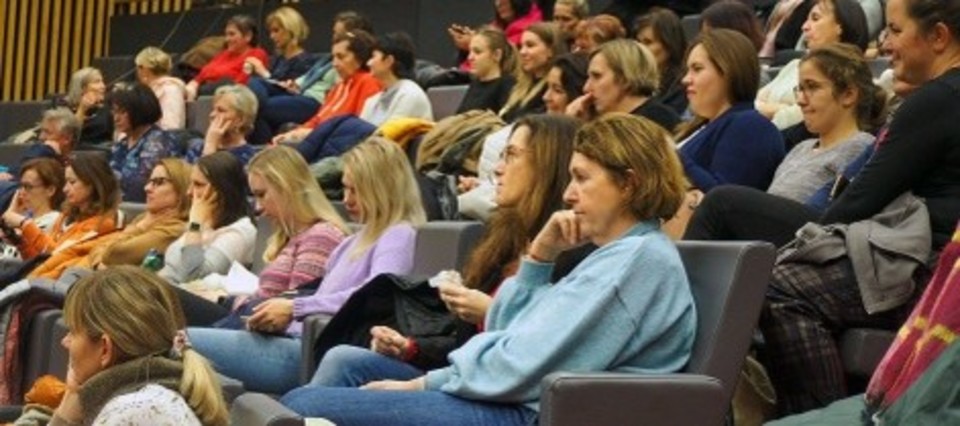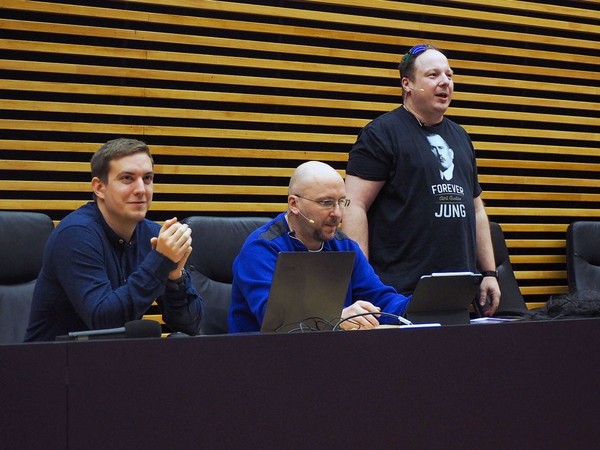Almost a thousand teachers from all over the Czech Republic have been learning media education at the Faculty of Education at Palacky University. The faculty actively participated in the activities of the international consortium The Central European Digital Media Observatory (CEDMO), which aims, among other things, to help society resist disinformation.
During the winter semester, several hybrid lectures entitled Truth and Lies in the Online World were held in the auditorium of the Faculty of Education. They were addressed to teachers and students of teaching programmes and the lecturers covered topics such as disinformation, misinformation, fake news and cognitive distortion, with the aim of strengthening media literacy among teachers. Nearly 1,000 teachers from all over the Czech Republic attended the lectures.
"We focused the educational events on topics that are very crucial at the moment and concern basically every user of Internet services. Almost eighty percent of teachers have not undergone any training in media education as part of their studies and we are trying to make up for this deficit through our educational activities," said Kamil Kopecký, head of the implementation team from PdF UP.
The content of the lectures was a basic theoretical introduction to the issue, information on how disinformation is created, how it is connected to important world events, and, above all, what impact it has on the target group. The lectures also focused on teaching practice. They provided teachers with a number of topics that can be used in teaching. They were interactive, thus engaging both the target audience present in the hall and the streaming audience. By using the interactive sli.do tool, the lecturers could easily activate the audience and get them to participate in activities such as collective voting, decision making, commenting on contributions, problem solving, etc. Everything was done largely anonymously, which allowed for the involvement of audience members who would otherwise often be shy to ask their questions.

"The basic tool that the teachers used in the lectures was the mobile phone. It was with its help that they not only tried out interactive activities, but also realized how effective a mobile phone can be in the school environment," added one of the implementers René Szotkowski from the Faculty of Education of the Palacky University.
The main part of the lectures was devoted mainly to examples of concrete activities that teachers can do with their students, starting from the first grade of primary school. The presentations included topics that disrupt the established ideas about the functioning of the world around us, such as myths that we believe from an early age, while the lecturers gradually moved on to various types of distortions, prejudices, and activities focused on the issue of misinformation and propaganda.
Important topics included working with emotions that often accompany false content. Educators learned to work with them and not to rely only on the first, often distorted, impression that potentially false news gives.
"We are preparing, among other things, a handbook that will offer a selection of activities. Teachers will be able to try them out with their pupils at school. They will find in it both activities that are oriented towards media literacy, as well as activities aimed primarily at critical thinking and logical reasoning," added Dominik Voráč, lecturer in media education and PhD student at the Faculty of Education of Palacky University, who also confirmed that the faculty is planning follow-up lectures for teachers free of charge in the first quarter of 2023. Details will be published here and here. ČT's report for the programme Události here.
CEDMO – The Central European Digital Media Observatory, an independent impartial multidisciplinary centre. This international consortium was created to develop a set of short and long-term actions as well as recommendations to help civil society, public institutions and the private sector respond to declining trust in key institutions. The consortium is also intended to help society withstand the effects of increasing exposure to misinformation.
